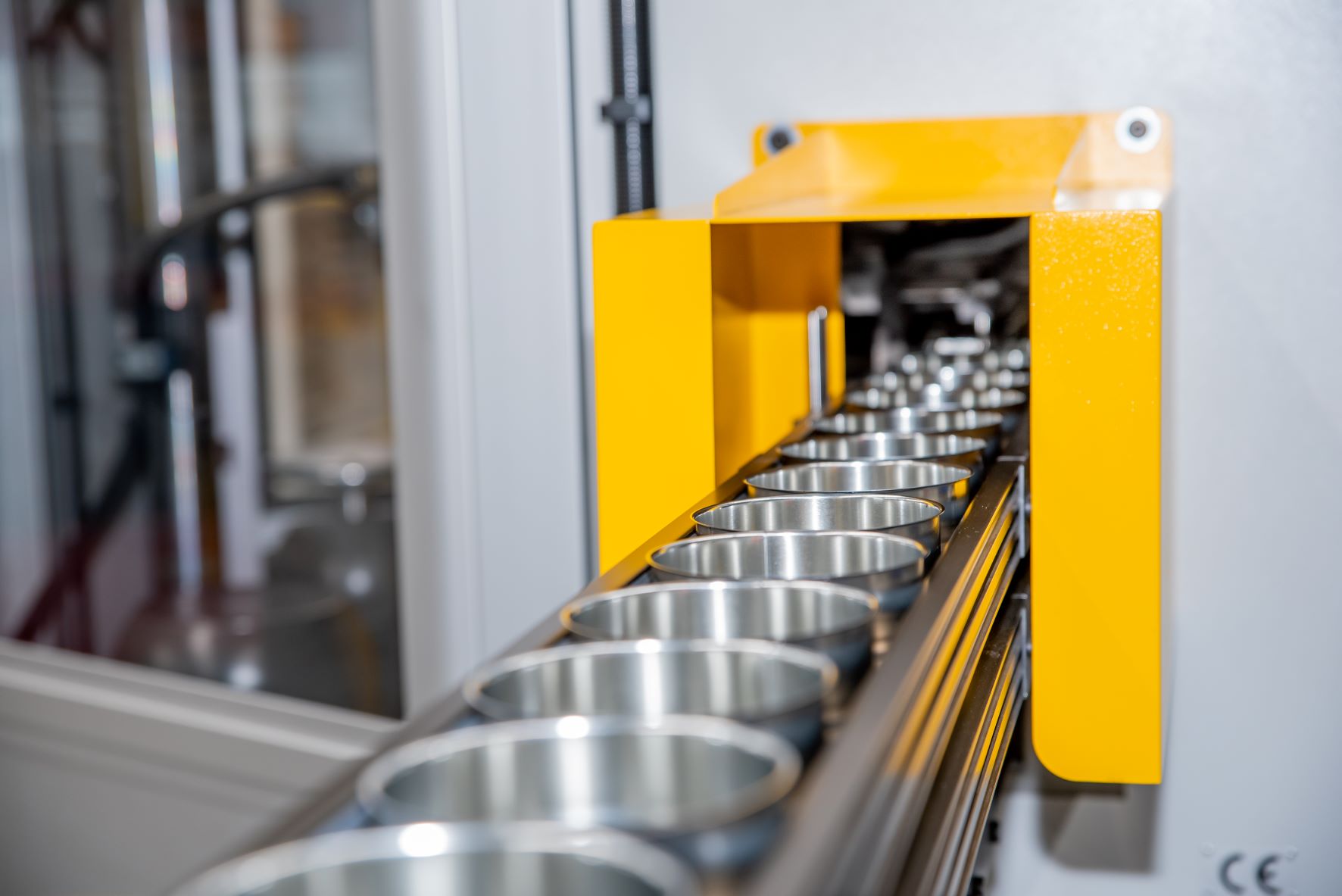Darnley’s gin unveils gin in recyclabl...
The refill pouches, which can be returned to the brand’s headquarters for recycling, are available in 70cl for each o
The refill pouches, which can be returned to the brand’s headquarters for recycling, are available in 70cl for each o
Campbell Soup Co.
Over 70 financial institutions and businesses have released a statement urging an ambitious international, legally binding global treaty on plastics pollution ahead of the UN Environment Assembly (UNEA) 5.2, held in Nairobi, Kenya, this year.
The signatories, already supporters of WWF’s previous report “The Business Case for a UN Treaty on Plastic Pollution,” include Amcor, Berry, Coca-Cola, Mondelēz International, Mondi, Nestlé, Procter & Gamble, PepsiCo and Unilever.
“A new UN treaty is crucial to set a high common standard of action for all countries to abide by, and to drive the transition to a circular economy for plastics globally and at scale,” reads the statement.
“This [transition] requires governments to align on regulatory measures that cover the whole life cycle of plastics, not limiting the scope of negotiations to address waste management challenges only.”
Andrew Morlet, CEO of the Ellen MacArthur Foundation, says the statement “sends a powerful signal to policymakers that they now have an unprecedented opportunity to turn the tide on plastic pollution.”
Intergovernmental Negotiating Committee
The statement highlights three central issues with plastic pollution globally:
Given these three considerations, the signatories are urging the formation of an Intergovernmental Negotiating Committee at UNEA 5.2 to develop sets of policy initiatives and goals.
Morlet comments: “Plastic pollution doesn’t stop at borders. It is a global problem that requires businesses and governments to work together on global solutions.”
“Today marks the first time so many leading businesses have come together and called for a legally-binding, robust treaty; one that sets common rules and regulations, establishes a level playing field and creates the conditions needed to deliver coordinated global solutions.”
Policy proposals
Included in the statement’s recommendations is the establishment of upstream and downstream policies, which could keep plastics in the economy and out of the environment and reduce virgin plastic production and usage. These policies would also decouple plastic production from the consumption of fossil resources, it reads.
The committee would also focus on setting a clear direction to align governments, businesses and civil society behind a common understanding of the causes of plastic pollution and a shared approach to address them.
For companies and investors, this clear direction would create a level playing field and prevent a patchwork of disconnected solutions, while setting the right enabling conditions to make a circular economy work in practice and at scale, they argue.
Providing robust governance to ensure countries’ participation and compliance will also be essential, continues the statement. If a committee can ensure a mechanism by which this can happen, it would “facilitate investments to scale innovations, infrastructures, and skills in the countries and industries most in need of international support.”
Critical point
The statement says we are at a “critical point in time to establish an ambitious UN treaty that fosters collaboration for systemic solutions and speeds up the transition to a circular economy globally.”
However, while there is wide-reaching support among activists and experts for a global plastics treaty, many signatory companies are ironically blamed for much of the world’s plastic pollution.
According to Innova Market Insights, 44% of global consumers say FMCG companies contribute significantly to the global plastic pollution crisis, topped only by consumer behavior (64%).
Last year, Break Free from Plastic named Coca-Cola, PepsiCo, Unilever, Nestlé, Procter & Gamble, Mondelēz International, Philip Morris International, Danone, Mars and Colgate-Palmolive as the world’s top ten plastic polluters.
All of these companies have signed the call for a treaty, however. Greenpeace USA Oceans Campaign Director John Hocevar recently told PackagingInsights: “One thing is clear: If the treaty does not significantly reduce plastic production, it will not solve the problem.”
“Greenpeace and other NGOs will be working hard to make sure we do not waste this historic opportunity.”
By Louis Gore-Langton
To contact our editorial team please email us at editorial@cnsmedia.com
We are a leader in responsible global packaging solutions supplying a broad range of rigid and flexible packaging products for the food, beverage, healthcare, home, and personal care and tobacco industries. Flexibles is one of the world's largest suppliers of flexible packaging and folding carton packaging. It has three operating divisions, each manufacturing flexible and film packaging for their respective industries: Flexibles Europe, Middle East & Africa and the Americas, Flexibles Asia Pacific and Global Tobacco Packaging. Rigid Plastics is one of the world's largest producers of polyethylene PET packaging as well as containers using other plastic resins.
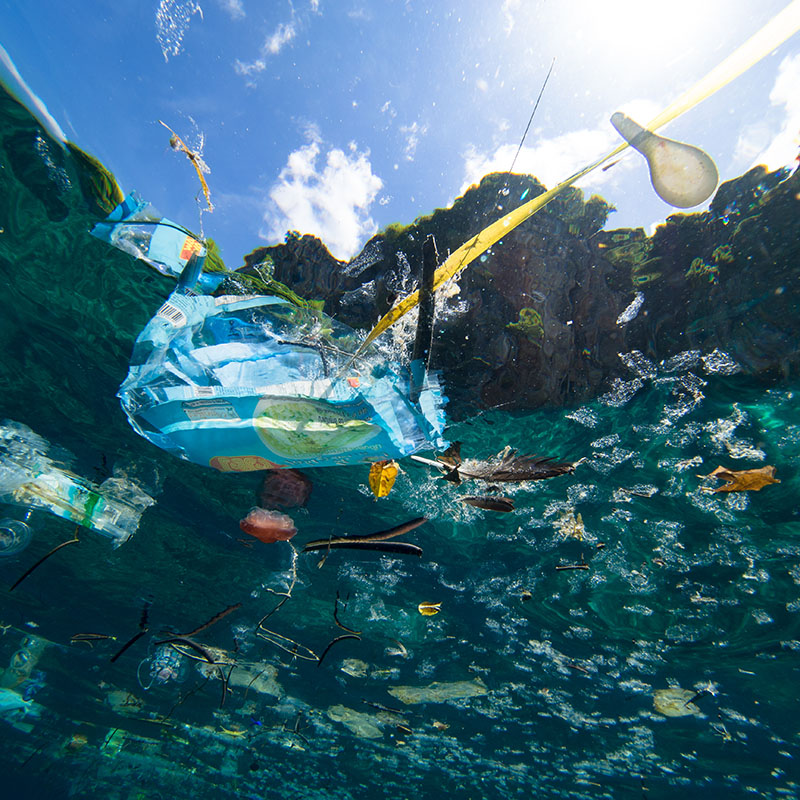
For CPGs hoping to launch new liquid products into industries like cosmetics, pharmaceuticals, and household chemical
This investment marks the first of its kind from Dow on the continent and expects to enable approximately 90 kilotons
This change in distributorship allows Bartelt to expand and streamline the HFFS product lines both Bartelt and FLtècn
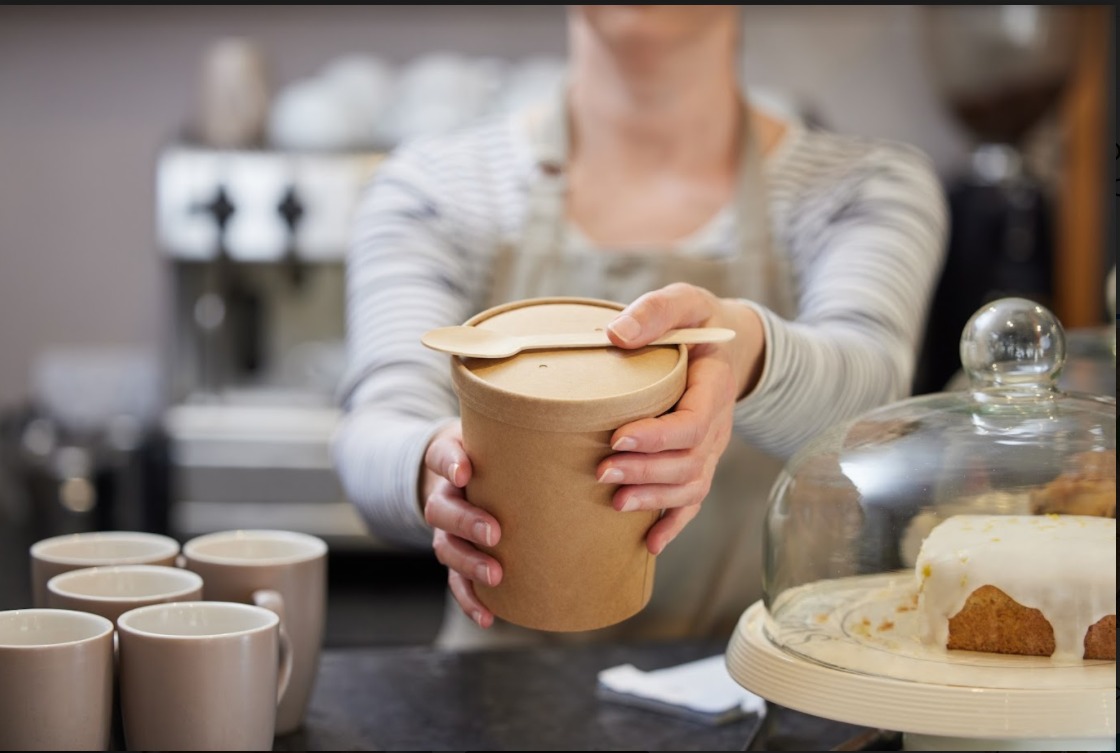
As more and more consumers become environmentally conscious, it’s vital for businesses to embrace sustainability in their packaging. In fact, this should be a priority among businesses across all niches as statistics show that more than half of the consumers worldwide take sustainable packaging into consideration before buying a product.
Sustainable packaging is expected to make waves in 2022, so make sure to stay ahead of the curve by adapting to trends. Your business will likely experience problems if it doesn’t keep up with sustainable brands in Australia or other sustainable brands across the globe.
Listed below are five sustainable packaging trends that are sure to become in-demand for 2022. Dedicate time and effort in learning these trends to help your business stay relevant:
1. Less Is More
Materials used in product packaging impact the environment in some way. Common packaging materials such as paper, aluminum, and glass use many natural resources like water, minerals, and energy. Manufacturing these materials also generates air emissions, including heavy metals.
One sustainable packing trend to watch out for in 2022 is the use of lesser materials. By 2022, businesses are steering away from using excessive materials in their packaging and only using materials that actually serve a purpose.
For example, instead of putting oranges in nets and then placing them inside plastic carry bags, businesses will likely invest in brown paper bags that take the shape of oranges. The lesser materials you use for your packaging, the more natural resources you can preserve.
2. Recyclable Packaging
Recycling is one of the oldest tricks in the book to protecting the environment. As long as done regularly, recycling can reduce the size of landfills, conserve natural resources, and help people save more money.
Benchmark on Dilmah tea sustainability actions and other similar companies use recyclable packaging. This is a packaging trend that you should definitely watch out for in 2022.
Businesses will ditch the use of plastics and will invest more in starch-based biomaterials, biodegradable packing peanuts, corrugated bubble wraps, and organic fabrics. These are considered green materials that effectively protect products from different elements.
3. Biodegradable Or Compostable Packaging
It’s common for consumers to throw away the packaging after using or consuming the product. Regardless of the material used, this habit can harm the environment as the materials can threaten wildlife and pose risks to human health.
By 2022, the popularity of biodegradable or compostable packaging is expected to increase. The goal of biodegradable or compostable packaging is to allow second life for packaging instead of it harming the environment.
One of the most common examples of biodegradable or compostable packaging is to use plantable seed paper boxes. This type of packaging will produce beautiful plants once thrown away into soils and gardens.
4. Flexible Packaging
When choosing packaging materials, businesses have to consider the dimensions of their products. They need to make sure the packaging isn’t too big or too small to ensure that the product inside remains in tiptop condition.
2022 is the year where flexible packaging will become more common. This type of packaging requires less energy and water to manufacture and gives businesses the freedom to customize. This means that no matter the dimensions of your product, you can use flexible packaging.
Flexible packaging is also reusable as this comes with zip locks and seals. Instead of disposing of the packaging after using the product inside, consumers can reuse it to store dry goods at home.
5. Use Of Eco-Friendly Inks
Contrary to popular belief, the raw materials used in the product packaging aren’t the only things harming the environment. The ink used to showcase brand names and product details can also damage the environment.
Petroleum-based inks are commonly used in product packaging but are actually considered hazardous waste. This type of ink contains heavy metals, namely lead, mercury, and cadmium. These are toxic and are dangerous to both wildlife and humans.
If you want to stay ahead of the competition in 2022, refrain from using petroleum-based inks in your packaging and look for greener alternatives. For example, you can use soy-based or vegetable inks as these are biodegradable and less likely to release any toxic chemicals when manufactured or disposed of.
Additionally, soy-based or vegetable inks are cheaper than other types of ink. By using soy-based or vegetable inks in your packaging, you can save financial resources while preserving the environment!
Adapting To Trends Early Is Key To Long-Term Success
Adapting to sustainable packing trends in 2022 is a win-win for all parties involved. Through sustainable packing, consumers get to use products that cause little to no harm to the environment while allowing your business to earn more and attract more consumers.
Undeniably, sustainable packaging will become mainstream in 2022, so start exploring your options early. The sooner you adapt to sustainable packing trends, the better chances your business has to succeed in the industry!
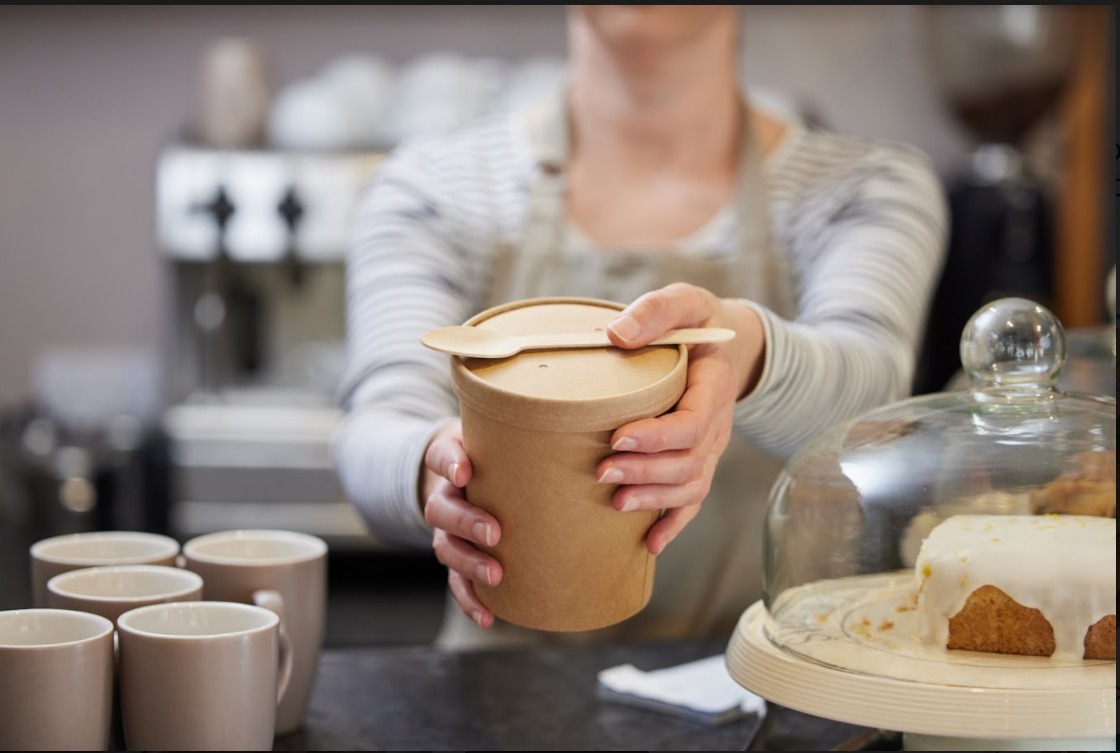
Smurfit Kappa has had its emissions reduction targets approved by the Science Based Targets initiative (SBTi) as consistent with levels required to meet the goals of the Paris Agreement. The targets covering greenhouse gas emissions from Smurfit Kappa’s operations (scopes 1 and 2) are consistent with reductions required to keep global warming to well-below 2°C.
The SBTi is a collaboration between CDP, the United Nations Global Compact, World Resources Institute (WRI) and the World Wide Fund for Nature (WWF) which defines and promotes best practice in science-based target setting and independently assesses companies’ targets.
The initiative mobilises companies to set science-based targets in the transition to a low-carbon economy. Emission reduction targets are considered ‘science-based’ when their CO2 reduction targets are in line with what the latest climate science says is needed to meet the goals of the Paris Agreement.
SBTi approval is the latest validation of Smurfit Kappa’s leadership in sustainability in the paper-based packaging sector. In 2020 the company was the first in the industry to announce its target of at least Net Zero fossil emissions by 2050 and also introduced ambitious new sustainability targets under its Better Planet 2050 initiative. Smurfit Kappa was also the first FTSE 100 company to receive 5 stars from “Support the Goals” in recognition of its support of the United Nations’ Sustainable Development Goals, building on the company’s leading performance across third party rating companies such as MSCI, ISS ESG and Sustainalytics.
Tony Smurfit, Group CEO, said: "The SBTi validation builds on our well-established sustainability credentials and is an extremely positive development for Smurfit Kappa and all our stakeholders. The world must move to circular business activities with low carbon emissions. SBTi is further evidence of our ability to deliver on this goal, and for our customers, through our increasingly sustainable operating footprint and packaging solutions.
“Sustainability is at the heart of all our operations, and we have a long-term commitment to protect the planet, its people and all our stakeholders.”
Garrett Quinn, Chief Sustainability Officer at Smurfit Kappa, added: “In Smurfit Kappa we focus on long-term ambition coupled with action and delivery today. The strength of our continued delivery across our sustainability metrics has been further underlined by SBTi’s approval.
“Since starting our corporate sustainability reporting journey over 15 years ago, we have been collaborating with like-minded organisations to tackle critical issues such as climate change, waste reduction and water scarcity.
“SBTi approval provides us with a solid foundation to build towards our Better Planet 2050 targets and plays an increasingly important part in the delivery of our customers’ sustainability goals.”
Smurfit Kappa is a leader in the circular economy providing sustainable, renewable, recyclable, and biodegradable paper-based packaging solutions for over 65,000 customers.
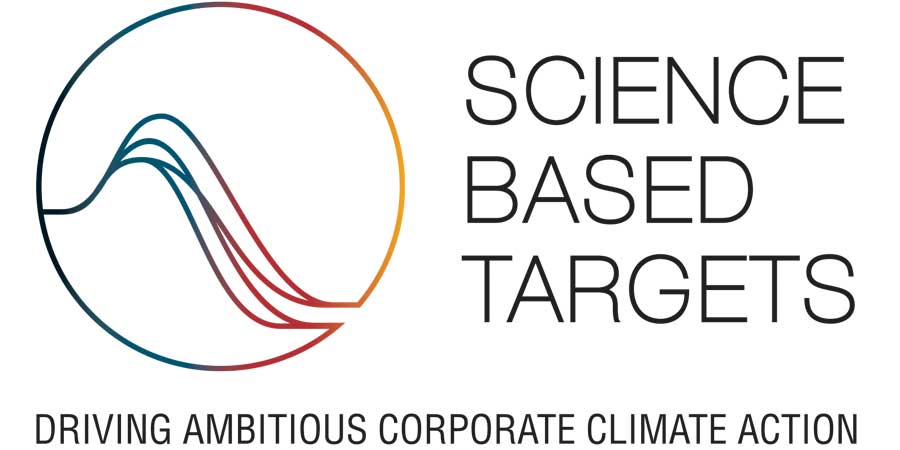
The announcement follows news late last year that Papyrus Australia’s joint venture company Papyrus Egypt had signed
Morrisons will remove “use-by” dates from milk packaging at the end of the month in an attempt to save millions of pi
Evian Sparkling is now available at Tesco stores, with both packaging formats recyclable – a 33cl aluminium can and a
Ardagh Glass Packaging (AGP), part of Ardagh Group, will celebrate the United Nations International Year of Glass throughout 2022, commemorating the essential role of glass packaging in a sustainable society.
The International Commission on Glass (ICG), the Community of Glass Associations (CGA) and ICOM-Glass are promoting 2022 as the United Nations International Year of Glass (IYOG) to underline the scientific, economic and cultural importance of glass in all its forms in our everyday lives.
The year-long celebration will result in a range of events across the world, including fairs and exhibitions, seminars and social media campaigns, to inform and educate communities everywhere of the rich history that glass has and its enormous beneficial contributions in areas such as sustainability, health, culture and art to name a few. AGP are looking forward to supporting some of the events taking place in our own regions in recognition of this significant milestone for our industry. These include the National Day of Glass from 5th to 7th April at the Madison in Washington DC and the Glasstec Exhibition from 20th to 23rd September in Dusseldorf, Germany.
The very first glass bottles and jars were made in Egypt more than 2000 years ago. Today, glass packaging is made from 100% natural and sustainable raw materials: recycled glass, limestone, soda ash and silica sand.
Glass is sustainable and infinitely recyclable, making it the perfect material for a circular economy. Additionally, glass is the only widely-used food packaging granted the U.S. Food and Drug Administration (FDA) status of ‘GRAS,’ or Generally Regarded As Safe – the highest standard.
AGP has a long and proud history of glassmaking dating back more than 300 years. All of AGP’s glass bottles and jars contain recycled glass (cullet), and, in Europe, AGP uses up to 90% recycled content in the manufacturing process.
Mike Dick, Chief Commercial Officer for Ardagh Group comments:
“AGP is a leading supplier of sustainable, infinitely recyclable glass packaging, that plays a key role in the circular economy. In this IYOG, AGP is focused on product and process innovations, as well as working on breakthrough projects which will help to achieve our 2030 sustainability targets outlined in Ardagh Group’s latest Sustainability Report.”
These targets include zero waste to landfill, a 26% intensity reduction in water usage, a 23% intensity reduction in NOx emissions, a transition to 100% renewable electricity and maximising the use of recycled glass in our furnaces. We are also aligned with the Science Based Targets Initiative for Greenhouse Gas emissions and are committed to delivering CO₂ reduction through a continued focus on developing lower carbon glass packaging via both new and existing technologies.
Eight facilities across AGP are already using renewable electricity: Limmared, Sweden, Barnsley, Doncaster, Irvine and Knottingley in the U.K. and Bridgeton, New Jersey; Burlington, Wisconsin; and Madera, California in the United States. To support AGP’s emissions reduction strategy, major off-site renewable energy projects are under development in three European facilities: one in Germany and two in the UK.
Aligned with these sustainability targets, AGP – North America (NA) has diverted waste from landfill at its Burlington, Wisconsin and Ruston, Louisiana facilities by diverting 100% of their non-hazardous oily debris from landfill and converting it for energy recovery and alternative use. In the future, this same methodology will be implemented at additional facilities throughout AGP – NA.
For more on Ardagh’s sustainability progress and to read our 2021 Sustainability Report, please visit ardaghgroup.com/sustainability.

The cross-industry initiative for high-quality plastics recycling "R-Cycle" has been nominated for the German Innovation Award for Climate and Environment (IKU) 2022 of the Federal Ministry of Economic Affairs and Climate Action (BMWi). The technical selection was made together with the Fraunhofer Institute for Systems and Innovation Research (ISI) in Karlsruhe
The IKU is awarded every two years for ideas that show new ways in the field of climate and environmental protection. In this way, the organizers honor the commitment of industry and research to climate and environmental protection. From a total of 150 applications, 21 candidates were nominated in 7 different categories. R-Cycle is in the final selection for the category "Use of digital change for climate and environmentally friendly innovations". The announcement of the winners as well as the award ceremony will take place in spring 2022
Dr. Benedikt Brenken, Director of the R-Cycle Initiative, explains, "Being nominated for this prestigious award is a great honor for us. With RCycle, we want to make a decisive contribution, together with all partners, to increasing recycling rates for plastic packaging, enabling high-quality recycling and ultimately establishing a functioning circular economy for this material."
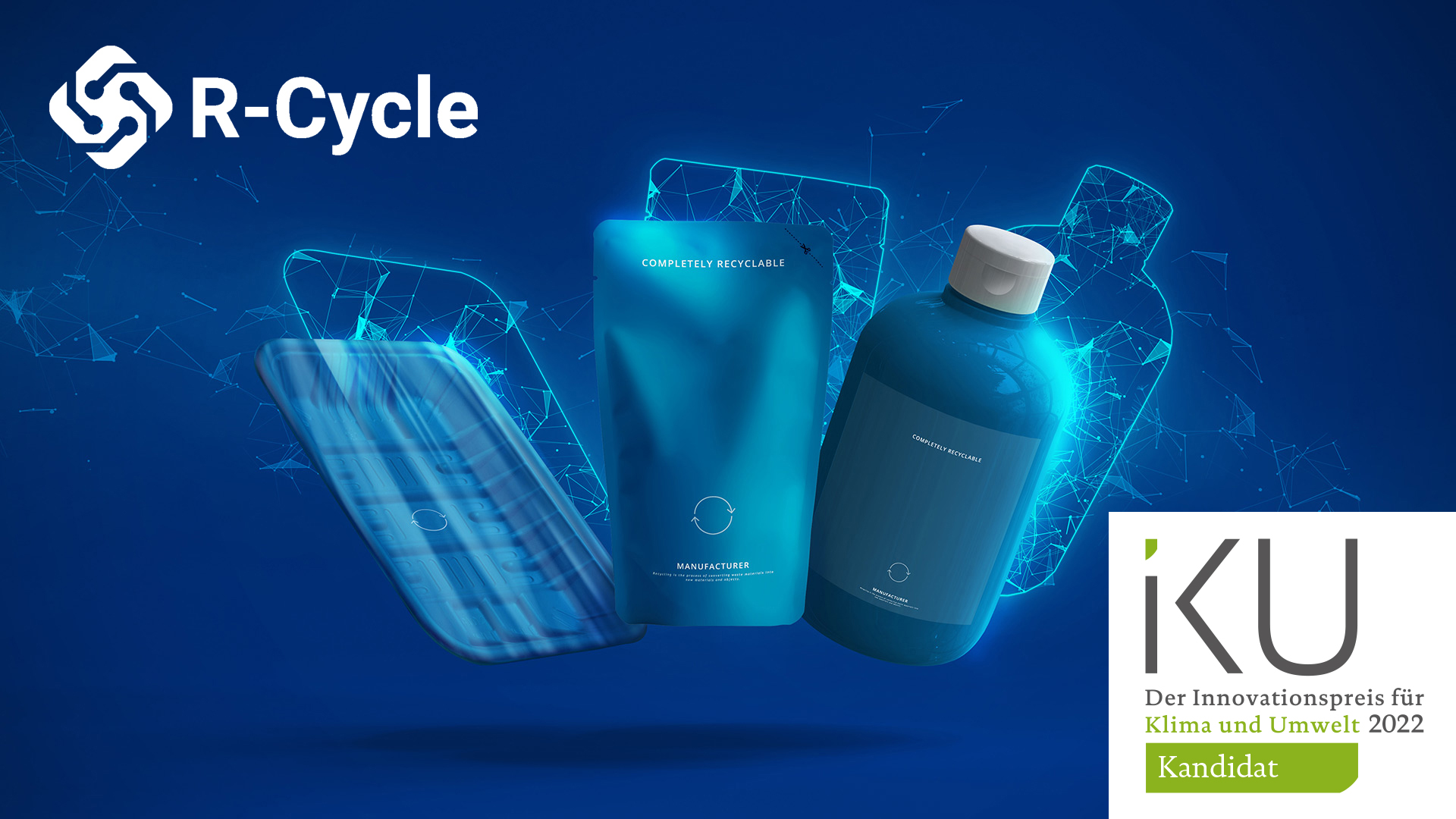
The "Defiance!" series by Lemonati Family Farms will raise $1 from each sale to support Freedom Grow, a nonprofit 501
Happier Beauty, a British eco-friendly dental brand is developing a refillable toothpaste dispenser with biodegradabl
Researchers at Empa, a Swiss materials research organisation, have developed a protective cellulose coating for fruit
Chanel has unveiled N°1 de Chanel, a new generation of eco-responsible beauty products that are formulated with up to
US-based baby food company LactaLogics has finalised a partnership with flexible packaging manufacturer Scholle IPN f
€4 million investment segregates baby milk powder tins production, paves way for further growth with space for additional line.
a global provider of high-quality packaging for infant-food, nutritional and wellbeing products, has upgraded its manufacturing facility in The Netherlands to include a dedicated tins production line for baby milk powder products. Now installed and operating in a segregated room for food-grade compliance, the new line is currently servicing a major customer in the baby milk sector.
Hoffmann manufactures its tins supplies with BRC/IoP GS 6 and ISO 9001 production standards, applicable for major markets like the EU, US and China. The €4 million investment brings the capability to expand its baby milk powder tins capacity by 118 million pieces per year. Currently, the line is producing 99mm diameter cans with volumes of up to 400 grams (0.88 lbs.). The newly dedicated room also has space for a second production line to accommodate continued growth.
The expanded capacity and new sustainable product lines also come with a reorganized leadership team. To ensure alignment across its two tins production facilities in Switzerland and The Netherlands, Hoffmann has streamlined its executive structure to hold responsibility over the entirety of its growing metal packaging business unit.
First, Metal Business Unit managing director Andreas Geiger is departing Hoffmann Neopac Group after two years leading the tins business. André Seiler has taken over the tin division’s management, and will commute between the two main production sites in Switzerland and The Netherlands. Mr. Seiler is a longtime metal processing industry professional, including tenure as managing director for Stebler Blech AG and Stebler Packaging AG in Nunningen, Switzerland. He is the current president of the Swiss Metal Association (SVM).
In addition, packaging industry expert Karin Paldanius will join Hoffmann on February 1, 2022 as Director Sales, TINS. Ms. Paldanius comes to Hoffmann with far-ranging experience in both the packaging and production sectors.
Finally, sales director Tomas Pivko has decided to reduce his workload He steps back from the Executive Board and serves as a key account liaison.
“The new dedicated baby milk powder tins line at our facility in The Netherlands further cements Hoffmann’s standing as a European specialties producer in the metal packaging sector,” said Mark Aegler, CEO of Hoffmann Neopac. “We are excited to welcome new team members and like to commend both Andreas Geiger and Tomas Pivko for the exemplary work they’ve done to grow and transform our packaging business over the past decade. For the future, we continue investing heavily in decarbonizing our production sites and products, thereby reducing our overall impact in the steel packaging supply chain.”
About Hoffmann Neopac
Hoffmann Neopac is a privately-owned company, headquartered in Thun, Switzerland. The group produces high-quality metal and plastic packaging in six locations: HOFFMANN tins in Thun and Holland; Polyfoil® and plastic tubes with NEOPAC in Switzerland, Hungary and the US; and 3D Neopac in India. Its longstanding customers include pharmaceutical, cosmetics and consumer goods manufacturers in the European, North American and Asian markets.
Including its new production facility in the United States, Neopac employs around 1,250 employees and has a capacity of 1.3 billion tubes. The company is dedicated to sustainability in both its manufacturing processes with renewable electricity and corporate culture, including a dedicated eco-conscious packaging portfolio. For more information, visit www.hoffmann.ch.
